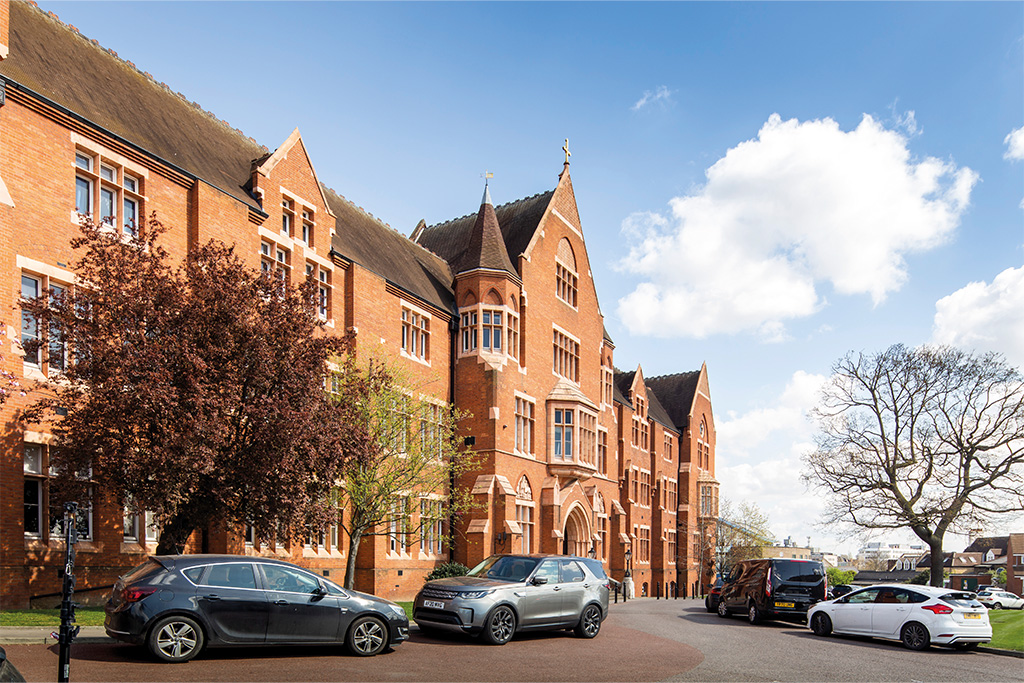Our Mutual Friends
By
3 years ago

Schools must reach out to the communities beyond their gates with partnerships, says Nick Hewlett, head of St Dunstan’s College.

St Dunstan’s College, established in Catford in 1888, was founded on principles of benevolence and ambition. Benevolence that saw a group of parishioners from St Dunstan’s in the East see fit to fund a new school in the growing suburbs of London, and ambition to create a school that was ‘ahead of its current time’. A school that would enable students ‘to find out and do’, rather than simply sit and listen. A school that would introduce a radically different curriculum, containing science, technology and engineering, and trailblazing a contemporary educational offer. A school that would enlarge access by supporting children from a range of backgrounds and means.
We know that classroom learning forms only part of the educational journey for young people. Learning from service to others and involvement in wider communities, both local and beyond, is of equal importance in shaping compassionate and confident young people, keen to make positive choices in their pathways through life.
I am a firm believer that independent schools must be active participants in the broader societal journey and our collective endeavour towards a more inclusive society. We can and must do more to erode any perception that we are bastions of institutional privilege. As one of the only independent schools in our local borough of Lewisham, our school community realises that we hold a fortunate position. It is important to us that this can be of benefit to, and be enhanced by, the communities that extend beyond our College gates.
We can and must do more to erode a perception that we are bastions of institutional privilege
In recent years, we have worked hard to build strong partnerships with local state schools and wider Lewisham community groups, and in such a way that goes far beyond merely permitting the use of facilities. The College’s Wren Committee is a strategy group that brings together all stakeholders to consider how we can further promote social mobility, engender wellbeing and improve the communities of which we are a part. In recent months, we have undertaken a number of initiatives.
Partnerships with local state secondary schools have included welcoming talented musical students to join our music scholarship programme here at St Dunstan’s, allowing them to receive music lessons, join our ensembles and orchestras, and take part in our musicals and concert performances. Our CCF, drama and sporting programmes all work alongside our partner schools to the mutual benefit of all. Our two-week St Dunstan’s Festival, which takes places every June, has been opened to the wider community and this year local schools joined our own students in the production of key artistic events.
Our partnership with Tottenham Football Club is based on a framework that ensures benefits extend as much to our broader community as they do to our own children. And our work with the local SEND hub allows us to share best practice and benefit from one another’s expertise, as much as our facilities offer tremendous benefit to those schools and their children.
Last year, we launched a new groundbreaking partnership with Lewisham Council and Westside Leaders Academy to establish the Lewisham Young Leaders Academy (LYLA). Through weekend classes hosted at St Dunstan’s, LYLA provides additional support to young people from across Lewisham through transformative teaching of life skills and leadership coaching. Sixty students attend each week, with three staff mentors and two parent volunteers.
Of course, we also run an ambitious bursary programme. The admissions team and senior staff have a busy schedule proactively visiting local schools and community groups.
The independent sector has a tremendous opportunity to shape an exciting future, capitalising on a rich collective heritage for a greater societal good. I encourage all schools to embrace the opportunities that lie on their doorstep.
Nick Hewlett is head at St Dunstan’s College.

See St Dunstan’s College’s online listing here.



